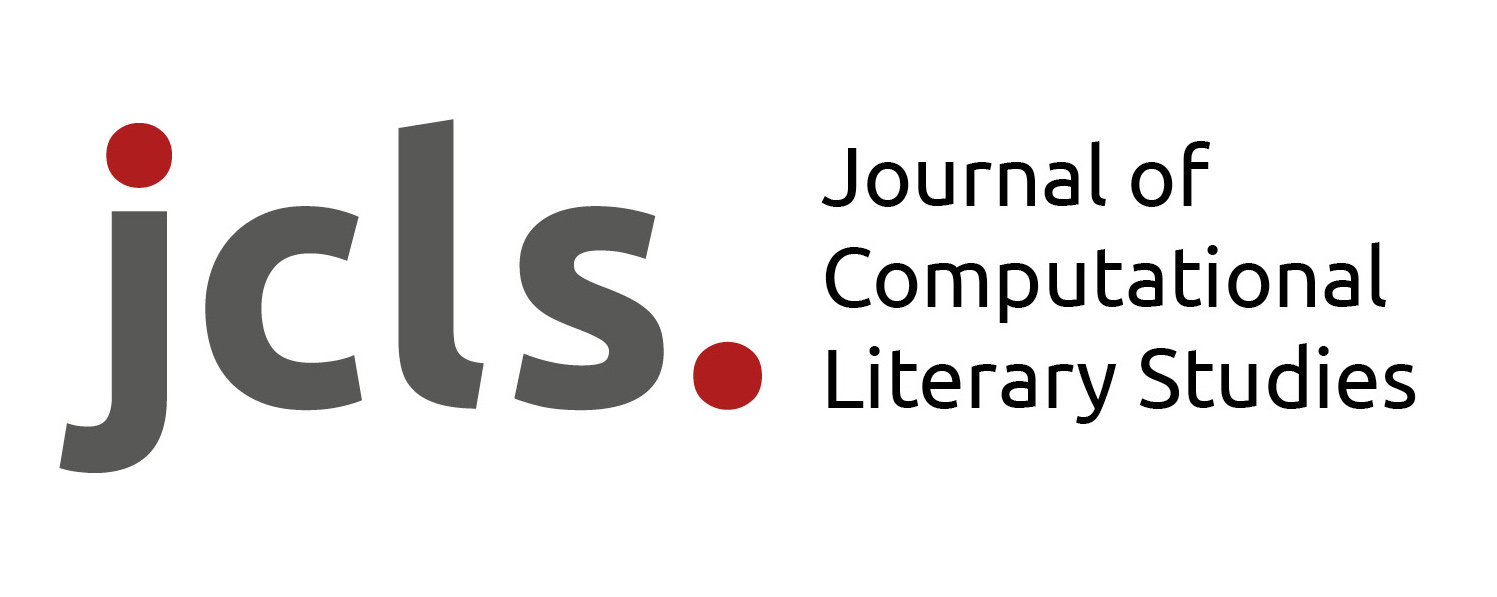Volume 1 • Issue 1 • 2022
Article
‘This book makes me happy and sad and I love it’. A Rule-based Model for Extracting Reading Impact from English Book Reviews
Marijn Koolen, Julia Neugarten and Peter Boot
2022-11-24 Volume 1 • Issue 1 • 2022
Topic Modeling for the Identification of Gender-specific Discourse. Virtues and Vices in French and Spanish 18th Century Periodicals
Yvonne Völkl, Sanja Sarić and Martina Scholger
2022-11-24 Volume 1 • Issue 1 • 2022
Modeling and Predicting Literary Reception. A Data-Rich Approach to Literary Historical Reception
Judith Brottrager, Annina Stahl, Arda Arslan, Ulrik Brandes and Thomas Weitin
2022-11-24 Volume 1 • Issue 1 • 2022
Towards an Event Based Plot Model. A Computational Narratology Approach
Evelyn Gius and Michael Vauth
2022-11-29 Volume 1 • Issue 1 • 2022
Evaluation of Measures of Distinctiveness. Classification of Literary Texts on the Basis of Distinctive Words
Keli Du, Julia Dudar and Christof Schöch
2022-11-30 Volume 1 • Issue 1 • 2022
Who Knows What in German Drama? A Composite Annotation Scheme for Knowledge Transfer. Annotation, Evaluation, and Analysis
Melanie Andresen, Benjamin Krautter, Janis Pagel and Nils Reiter
2022-12-01 Volume 1 • Issue 1 • 2022
Validating Topic Modeling as a Method of Analyzing Sujet and Theme
Julian Schröter and Keli Du
2022-12-06 Volume 1 • Issue 1 • 2022
Limericks and Computational Poetics: The Minimal Pairs Framework. Computational Challenges for Poetic Analysis and Synthesis
Almas Abdibayev, Yohei Igarashi, Allen Riddell and Daniel Rockmore
2022-12-07 Volume 1 • Issue 1 • 2022
Modeling and Measuring Short Text Similarities. On the Multi-Dimensional Differences between German Poetry of Realism and Modernism
Anton Ehrmanntraut, Thora Hagen, Fotis Jannidis, Leonard Konle, Merten Kröncke and Simone Winko
2022-12-08 Volume 1 • Issue 1 • 2022
The (In-)Consistency of Literary Concepts. Operationalising, Annotating and Detecting Literary Comment
Anna Mareike Weimer, Florian Barth, Tillmann Dönicke, Luisa Gödeke, Hanna Varachkina, Anke Holler, Caroline Sporleder and Benjamin Gittel
2022-12-16 Volume 1 • Issue 1 • 2022
